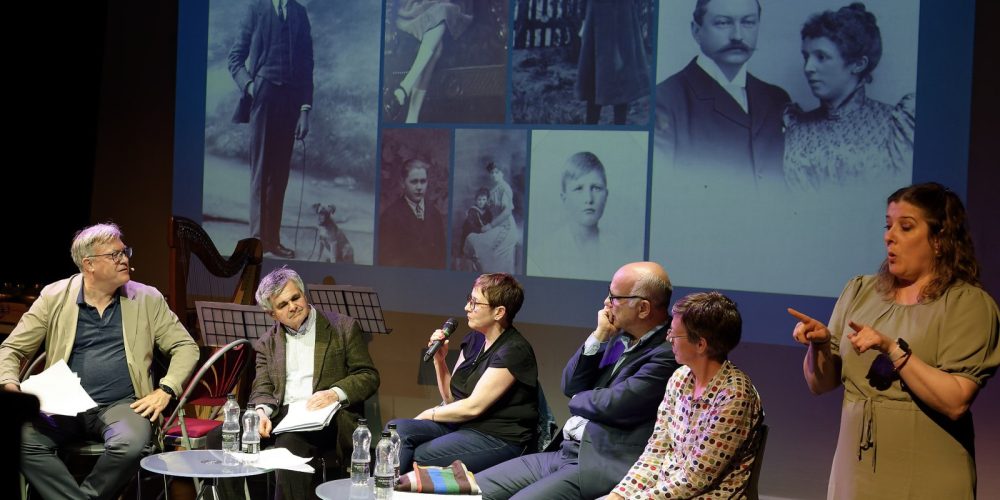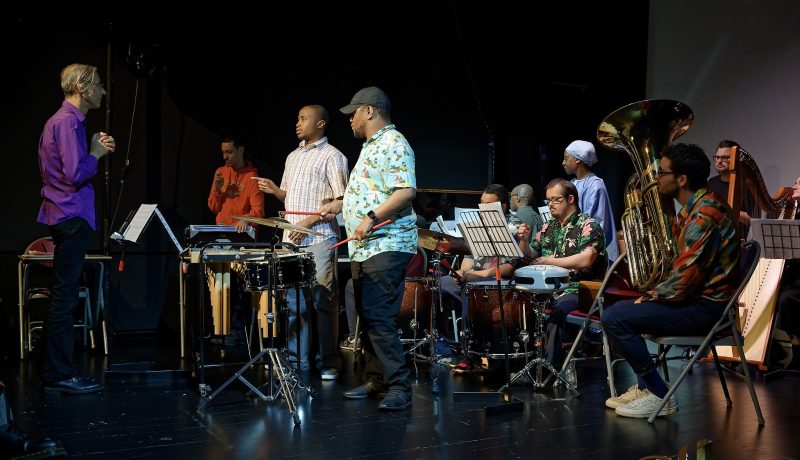
LDN London sponsored and supported an important exhibition this week about the Nazi killing programme of people with disabilities in the 1940s.
The Finding Ivy exhibition tells the story of 13 British-born people killed by the Nazis because they had disabilities or mental illnesses.
One of those people was Ivy Angerer, who was born to German and Austrian parents in Scotland in 1911. She happened to have a learning disability and because of that she was sadly murdered.
The research team, led by Helen Atherton, were first inspired to tell her story. The exhibition opened at the adult education college City Lit this week.
The event began with an interesting panel discussion with four people who have links to the issue. Former politician Ed Balls led this.
Helen Atherton is a lecturer in nursing and led the research for the Finding Ivy exhibition. She became interested when she read that there were British-born people affected by the Nazi’s killing programme T4, named after the area where it was planned, Tiergartenstrasse 4. She talked about how there is still lots of prejudice towards people with learning disabilities. This can, ultimately, lead to people with learning disabilities dying when they should not.
Playwright and campaigner Stephen Unwin is the father to a son who has a learning disability. He talked about the inspiration for his 2017 play about the Nazi killing programme, All Our Children. Stephen’s mother is a Holocaust survivor. He imagined what life would have been like for his own son, who has learning disabilities, if he had lived in Nazi Germany.
Stephen also talked about how people with learning disabilities are still often not valued by society today. When they are not valued, it can lead to tragedy: His most recent play Laughing Boy tells about the tragic death of teenager Connor Sparrowhawk who had autism and learning disabilities, and died through neglect in an NHS hospital.
Historian at Oxford Brookes Paul Weindling gave the audience some important background information about the ‘Aktion T4’ programme. The Nazis killed around 70,000 people with mental and physical disabilities between 1940 and 1941, because, the Nazi regime argued, they had ‘lives unworthy of life’.


The exhibition shows that, of course, this is not the case, and they were worthy. It is titled Finding Ivy: A life worthy of life. The research team has carefully and tirelessly researched the stories and shown that the 13 people did matter – and still do.
Another speaker, Nancy Jennings, is the great niece of Zdenko Hoyos, one of the people who featured in the exhibition. She talked about finding out about her relative and told us some of his story.
Born in 1903 in Oxfordshire, he was one of seven children, part of an affluent family, who lived between Austria and England. The family put on a yearly play and Zdenko, nicknamed Cocco, was the star. After finishing school, he had plans to study political science, but this was prevented by mental ill health. After spending time in institutions, he ultimately died at the hands of the Nazis in Hartheim between June 1940 and August 1941.
To begin with the family didn’t talk about him much, Nancy said. But now they try to keep him in their minds and want people to remember him.


The exhibition is not just about history but about today. It is a warning from the past: When a society does not see people’s humanity and worth as human beings, it can do terrible things. Marginalised groups, in the past or in the present, should not be forgotten about. Their stories should be told.
The event was also a chance to celebrate how our attitudes in society have changed.
The audience was lucky enough to see a fantastic performance by two organisations for performers with learning disabilities. The City Lit Percussion Orchestra (with participation by the Royal Academy of Music) and Corali Dance Company performed together in an original show for the occasion, blending music and dance.
It was a beautiful performance and highlighted the artistic potential of people with learning disabilities, who are given the chance.
Thank you to City Lit for brilliantly hosting the event.
Many thanks also to the research team, including our trustee, Simon Jarrett, and everyone else involved in telling these important stories.
The exhibition is dedicated to:
Ivy Berta Meta Angerer – 1911-1940
Arno Ansorge – 1902-1940
Martha Clara Büchel – 1875-1941
Felix Hermann Adolph Daubenspeck – 1911-1940
Count Zdenko Alexander Anton Hoyos (Cocco) – 1903-1941
Ella Louisa Mabel Jaeger (Mabel) – 1891-1940
William Martin (Bill) – 1906-1940
Gladys Iris Rosie Strauss – 1910-1940
Erwin Philip Münzenmaier – 1904-1940
Cecile Kate Bock – 1878-1941
Annie Elizabeth Helen Dietz (Nellie) – 1863-1941
Anna Elsie Panitza (Elsie) – 1897-1940
Marguerite Beatrice Frederica Baruch (Daisy) – 1883-1940

